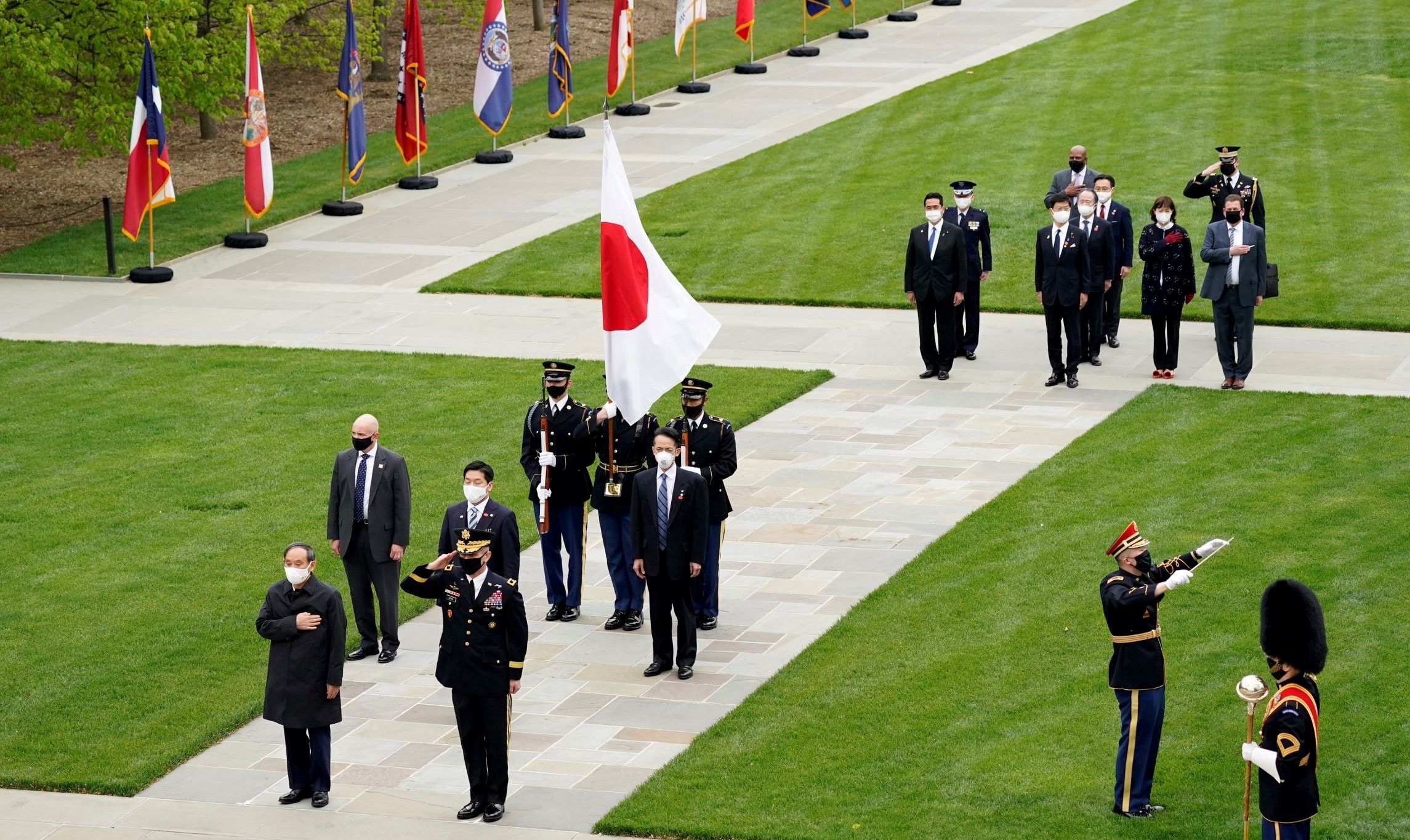President Joe Biden and Japanese Prime Minister Yoshihide Suga pledged to work together to advance the rule of law and democracy after a day of discussions about how best to tackle the rise of China.
Suga was the first world leader invited to the White House in a clear signal of the administration’s concern about Beijing’s economic, technical, and geographic expansionism.
They arrived an hour late to a Rose Garden press conference, in which Biden said they had agreed to work together on semiconductor supply chains, 5G technology, and artificial intelligence.
If that was not a clear enough nod to China’s growing dominance, he spelled it out in terms of regional diplomacy.
TAKE OUT THE TRASH DAY RETURNS TO BIDEN’S WHITE HOUSE
“We committed to working together to take on the challenges from China, and on issues like the East China Sea, the South China Sea, as well as North Korea, to ensure a future of a free and open Indo-Pacific,” he said. “Japan and the United States are two strong democracies in the region.”
Just as Biden has used the idea of a competition between democracy and autocracy to frame his domestic policy and spending plans, he used notions of human rights and rule of law to outline the alliance with Japan.
“We’re gonna work together to prove that democracies can still compete and win the 21st century,” he said.
The occasion also marked only the second press conference held by Biden. The result was something of a rusty performance by the leaders and by journalists.
At one point, Biden turned to Suga and clumsily tried to invite him to pick a reporter.
“You have a question you want to offer,” said Biden before laughing and trying to recover.
When Reuters tried to ask Suga whether he was confident the Tokyo Olympics could go ahead this summer amid COVID-19 warnings, the question was left hanging, unaddressed.
But he did engage with questions about Taiwan and human rights in China — two thorny issues for a leader who has to rely on China for trade.
“We … discussed the circumstances in Taiwan and Xinjiang Uyghur Autonomous Region,” he said, before finding a way out and saying he was unable to reveal more because they related to diplomatic exchanges.

The Biden administration has made clear that the Indo-Pacific, where China is expanding its sphere of influence, represents its primary foreign policy challenge.
That makes Suga a key ally. Biden administration officials said the invitation was intended to signal a declaration of the president’s foreign policy priorities and his ambition to restore alliances after former President Donald Trump’s “America First” stance.
A senior administration official said: “I think the idea of the visit is to underscore what we would really describe as almost an axiom or a maxim for the U.S. role in the region: The United States can only be effective in Asia when the U.S.-Japan relationship is strong and Japan is steady and stable.”
CLICK HERE TO READ MORE FROM THE WASHINGTON EXAMINER
Suga has his own goals. He is struggling with an economic crisis, the slow rollout of COVID-19 vaccines, and questions about the safety of the Tokyo Olympics, which is scheduled to open in July after a year’s delay — all with an election looming in September.
